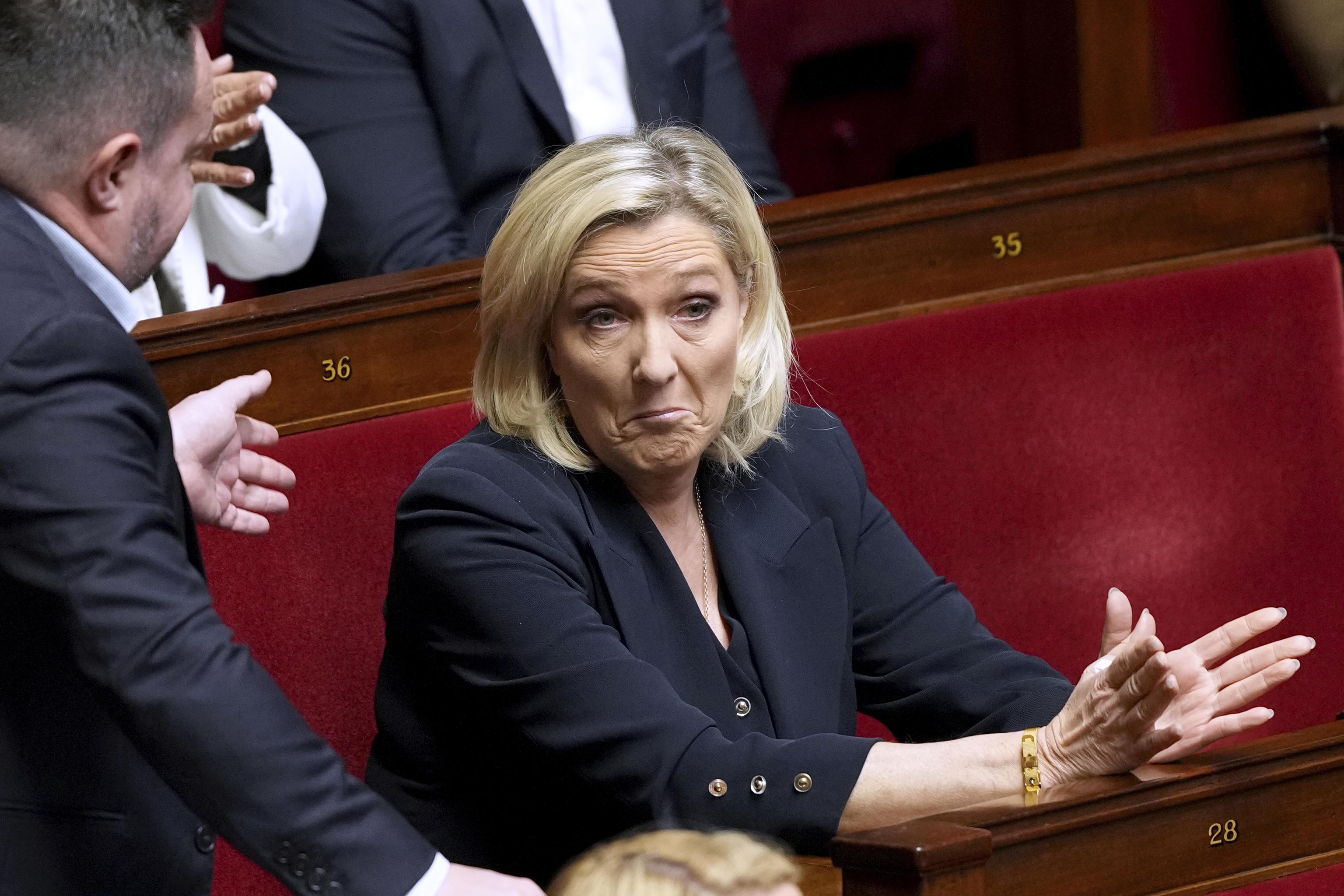The French moderate right-wing is struggling. The National Rally of Marine Le Pen continues to rise in the polls, driven by the judicial setback against its leader, while The Republicans (heirs of the gaullist tradition) still cannot find their way, forced to a shift towards the hard right to try to stop the ongoing voter exodus.
It was precisely the attempt of an electoral alliance in June 2024 with the far right that caused the latest crisis for The Republicans, leading to the dismissal and expulsion of their last leader, Eric Ciotti, who decided to retaliate by creating the so-called Union des Droites pour la République (UDR) and further contributing to the decomposition of the center-right space.
Eric Ciotti himself, the closest leader to the far right that The Republicans had in their brief history, once in favor of creating a "French Guantanamo," added fuel to the fire with his prominent presence at the recent rally in support of Marine Le Pen at Les Invalides, where he stated that the French democracy is being "confiscated by a power system that dismisses any candidate too right-wing with winning possibilities."
Two candidates, Bruno Retailleau (Cholet, 1960) and Laurent Wauquiez (Lyon, 1975), are competing to burn the last cartridges of The Republicans and become contenders for the 2027 presidential race, with arguments of hard right that seem taken from the populist manual of Le Pen or even Donald Trump. The internal election will be on May 17.
Bruno Retailleau is taking advantage of his position as Minister of the Interior since September 2024 (first with his party colleague Michel Barnier and now with the centrist François Bayrou) to raise his profile as an anti-immigration sheriff. He has straightforwardly linked the increase in crime in France with "mass immigration" and has criticized "African immigration" and the arrival of people who come "not to be French, but to enjoy our rights."
The controversial Minister of the Interior, known for his reactionary stance in the French National Assembly, has warned of the "Mexicanization" risk of the border with Spain due to the activity of organized drug trafficking gangs. Last week, he traveled to the Biriatou border post in the Basque Country to announce the creation of an "information cell" to prevent the entry of irregular immigrants through the Pyrenees.
Bruno Retailleau is turning the city of Marseille into his particular electoral stronghold. There, he launched his war on drugs and gathered hundreds of followers at a rally considered as the unofficial start of his presidential campaign for 2027, the same weekend Le Pen called her supporters in Paris.
In his own strident way, the other potential candidate of The Republicans for the presidential elections, Laurent Wauquiez, has also made headlines with a proposal more typical of the far right: "to confine" foreigners awaiting deportation and considered dangerous to the archipelago of Saint Pierre and Miquelon, the last vestige of the French colonial empire in North America, next to the coasts of Newfoundland in Canada.
In statements to Le Journal de Dimanche, Wauquiez defended his proposal by arguing that the remote archipelago is outside the Schengen area and that irregular immigrants would not be able to return to France. He also mentioned that it is "a very cold territory," with an average of five degrees throughout the year and 150 days of rain, which would serve as a clear deterrent: "I think that will quickly make people think."
Laurent Wauquiez held several ministerial positions during the Presidency of Nicolas Sarkozy between 2007 and 2012 and is the current leader of the diminished representation (47 deputies) of Republican Right, the name under which the party aspires to be reestablished, causing notable concern with his statements about a possible Guantanamo in the archipelago of Saint Pierre and Miquelon (with a population of 6,000 inhabitants).
Wauquiez also faces the weight of history: he was the president of The Republicans between 2017 and 2019, when he resigned after the party's disastrous results in the European elections. In those elections, they fell below 9% (this negative mark was surpassed in 2022 by the notable failure of the presidential candidate Valérie Pécresse, who finished fifth in the first round with 4.7% of the votes, leading the major right-wing party to its historical low).
Nicolas Sarkozy, sensing the situation, turned his back on Pécresse and initially called for votes for Emmanuel Macron, triggering another of the countless internal crises in The Republicans, a party created in 2015 from the remnants of the Union for a Popular Movement (UMP) of Jacques Chirac, in that very French practice of rebuilding old parties.
Sarkozy was indeed the first president of Les Républicains (LR), and his ongoing legal troubles have only served to devalue the brand. The third judicial process against the former president of the Republic, 70 years old, this time for the alleged Libyan financing of his 2007 electoral campaign, concluded at the Courthouse of Clichy a few days after the ruling in Le Pen's case.
Supported by Carla Bruni, the former leader of The Republicans strongly criticized the tense political atmosphere that served as the backdrop for his new trial.
The prosecutor requested seven months in prison and a ¤300,000 fine for his "frantic search for political financing to satisfy an all-consuming political ambition." The other bombshell sentence of the French right is scheduled for September 25.
